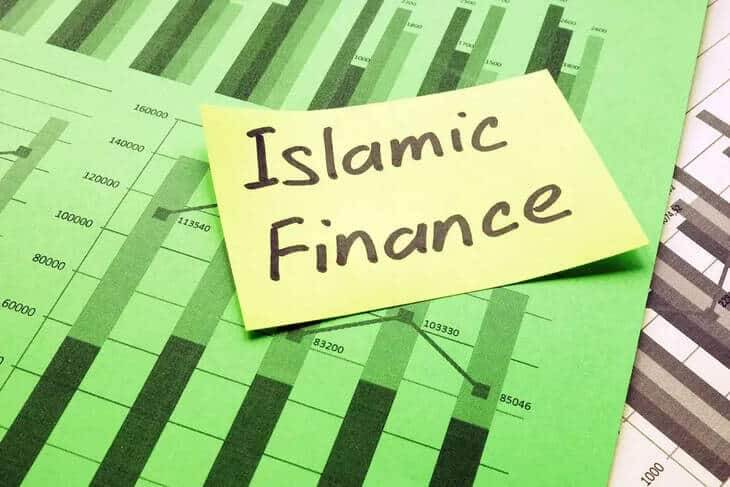
Is spread betting halal? – Forex by Islamic laws
Is spread betting halal or not? Is Forex trading halal? Before answering these questions, we will see what represents spread betting in trading.
Spread in trading jargon stands for the difference between the bid and ask price (stock price, currency pairs price, etc.). Betting on one direction of the price of an asset without actually owning it is spread betting.
The spread is the gap between the two prices, bid and ask, of various kinds of assets.
The more volatile the price movement, the difference is bigger. For instance, the spread will be more significant if you trade exotic currency pairs on Forex instead of major currencies. And while you trade, you go with the bid price if you feel the price will go up, and vice versa. If you believe the price will go down, you align with the asking price.
Additionally, if you resort to trading on margin, you can invest only a portion of the value of the trading position. That consequently means the profit or losses could be higher.
Within Islam laws, the risk or ‘Gharar’ represents the main benchmark to whether a business activity is gambling or not. Gharar comes from the Arabic language and means risk, uncertainty, and deception. In trading, it is related to trading an asset that is not present. And that’s at the very core of trading derivatives and speculation on price movement.
Is spread betting halal? – What is halal?
To answer the question, Is spread betting halal let’s see what the word halal means. In general, according to Islamic laws, halal is everything that is allowed and compliant with God’s will. On the other hand, we have the notion of haram, which means that something is not good and therefore forbidden, such as gambling. These rules come from Sharia law, which is one of the most important ones in Islam.
In general, the answer to the question is whether spread betting is halal or haram depends on if there are interests charged.
Is spread betting halal in Forex? Overcoming Interest Charges
So how to overcome interest charges? Using an Islamic trading account, also known as a no Riba account, is the way to trade with peace of mind and in compliance with Islamic laws.
Many brokers are allowing Islamic accounts to utilize the Musharakah Arrangement in Islam. It means both parties will benefit from rewards and losses in trades. Therefore, each financial party earns without going against the law of ‘riba.’
No-riba Forex trading accounts make interest-free trading a viable option. Therefore, strategies using Margin trading, derivatives, Short selling, Options, Futures, Swaps, and Forwards will all not be permitted.
Besides, overnight rollovers will not be allowed. But instead, an Islamic trader will pay a fixed commission per trade. Commissions vary greatly and are much larger than traditional Forex accounts to compensate brokerages for the loss of revenue on interest rate differentials.
Spread betting can be halal if you use an Islamic account
Forex brokers and traders must comply with many regulations and laws while trading. If some of your questions regarding regulations and laws are spread betting halal, “is Forex halal,” here we will take a deeper look at it.
Depending on the intentions of the retail trader, Forex spread betting could be both halal and haram. But if you apply the proper strategy, trading using Islamic Forex accounts could be halal. On the other hand, if you have no proper system of trading and have regular interests charging your account, Forex could turn out to be haram.
As a Muslim, you can ethically trade on the Forex market. The difference between haram and halal could be overpassed by using the proper brokerage offering an Islamic account especially suited to your needs. Let’s take a look at how you can trade Forex in compliance with Sharia law.
Halal represents everything that is allowed and acceptable within Islamic laws. If something is forbidden, then it’s about haram. Forex trading halal means you trade with no interest rates charged to your account. In fact, as prescribed by Sharia law, there mustn’t be any interest in trade.
Mostly, Forex trading takes place via derivative contracts. A derivative contract implies that investors do not owe the currencies. They rather speculate on the volatility of prices using special arrangements. It’s a little bit like batting on a sports car or horse race. That’s the gray area of Forex in the eyes of those who interpret Islamic laws. Therefore everything that comes to derivative contracts, futures, where traders do not owe the asset but bet on its price, is forbidden.
How could Forex Trading be Productive?
According to Sharia law, if a non-productive activity creates wealth, it’s forbidden and considered haram. The ‘non-productive activity’ entails a lot of interpretation.
As for Forex trading, it’s halal since it requires a certain skill level to compete against other traders. It’s like sports. The strategy, risk management, and approach are crucial factors to a retail investor’s success and profitability. Due to the significant presence of skill, individuals can reduce the risk of Gharar.
Alternatively, trading derivatives on the Forex market allow export-import businesses to hedge the risk. Hedging is, therefore, a productive activity that both supports businesses and helps growth.
In short, under which condition is Forex trading acceptable according to sharia? First of all, the execution of the trade needs to be done without delay. The transaction has to be made as soon as possible. Otherwise, it would be an issue for an Islamic Forex trader. Finally, no interest rates are included in any form.
Islamic swap free account
Your spread betting can be halal if you use an Islamic swap-free account.
Islamic trading does not allow swap fees to be charged on Forex positions open for more than one session. Swap fees are like interest and are calculated even with an interest rate for instruments like Forex and gold, and interest is haram / illicit in Islam.
Swap-free trading accounts are available for residents of Islamic Shariah countries. On these particular trading accounts, no swaps are credited or debited.
The automated system identifies clients who reside in countries where Islam is the predominant religion and assigns their trading accounts swap-free status. It is not possible to benefit from swap-free status in countries not covered by this policy. No swaps can apply to cryptocurrencies, indices, stocks, and the XAUUSD (Gold-USD) pair, whether you have swap-free status or not (in the case of gold, a normal swap can apply on the other pairs.
What are Islam Trading Styles?
Islamic day trading. Day trading is a style of trading financial markets that are based on managing positions within a single trading session or day. It is conducive for securities with sufficiently fluctuating prices to make rapid capital gains. This style of trading can be used on an Islamic account. It makes it possible to respect the Koranic principles on finance because intraday positions are not subject to interest or swap fees.
Halal scalping trading. Using scalping as a trading style involves making a large number of trades in a short period of time. Each trade has a very short duration (in seconds) and allows a collection of minimal margins a large number of times. Scalping is a style of halal trading when used in accordance with the main principles of Islamic trading (no swaps, for example).
Halal swing trading. Swing trading is practiced with long positions, open over several days, sometimes several weeks. This style of trading is compatible with Islamic trading. Trades in swing trading can be based on fundamental analysis by anticipating, for example, the impact of a measure or announcement to come in the economic calendar.
How to Open an Islamic Trading Account
Choose a halal broker: you need to find an online trading site that offers Islamic accounts in its offer. There are Halal certifications that can be awarded to a broker. But it will always be necessary to inquire about and study the offers, conditions, and financial products offered by the broker.
Open and validate a trading account: fill in your information via the registration form (by clicking on “Register” from the trading site). When selecting the type of account, you must therefore select the Islamic account if this choice is available. Otherwise, if you know that your broker genuinely allows opening an Islamic account, but this type of account is not visible in the list of account types, simply select a standard account.
Activate your account with a deposit: once the required formalities have been completed, you can make a deposit in your account to activate it. Each online broker stipulates a minimum amount for the first deposit in an account and even specifies the minimum amount of the initial deposit for traders wishing to open an Islamic account.
Contact customer service and request the conversion of your account into an Islamic account if the account opened is not Islamic: some brokers offer the possibility of selecting an Islamic account directly in their offer. But sometimes, this is not the case, and Islamic trading is offered as an account customization. In the latter case, you will therefore have to contact customer service to indicate your need to trade according to Koranic laws. The broker will then configure your account to operate in accordance with Islam (no swaps, no interest on leverage, etc.).





